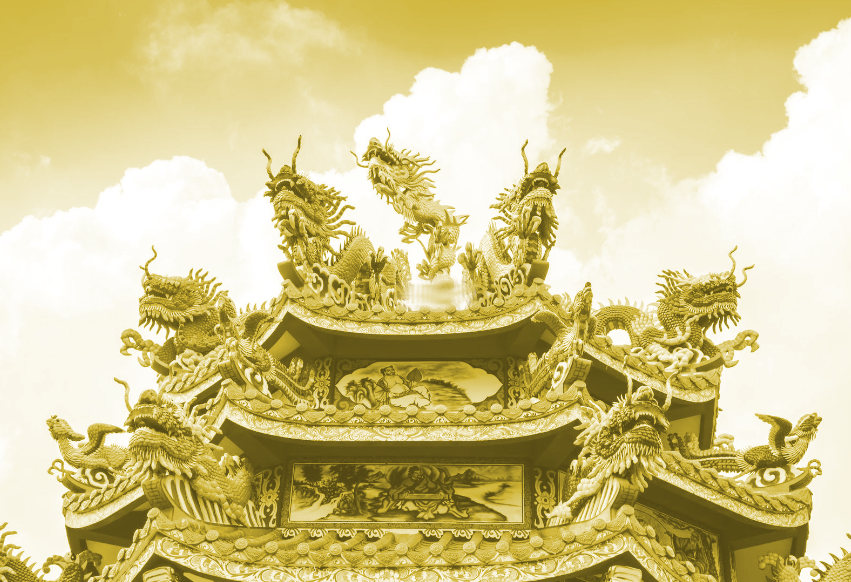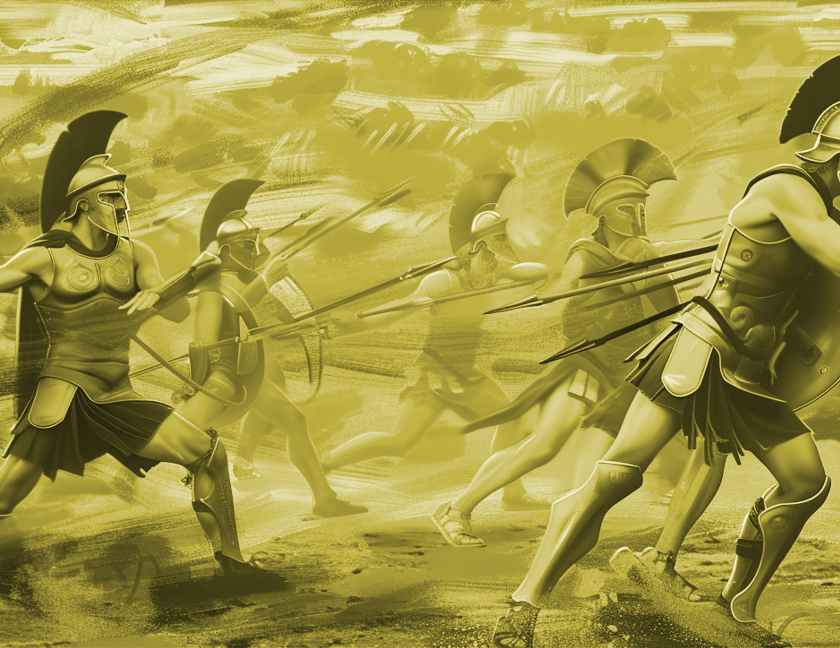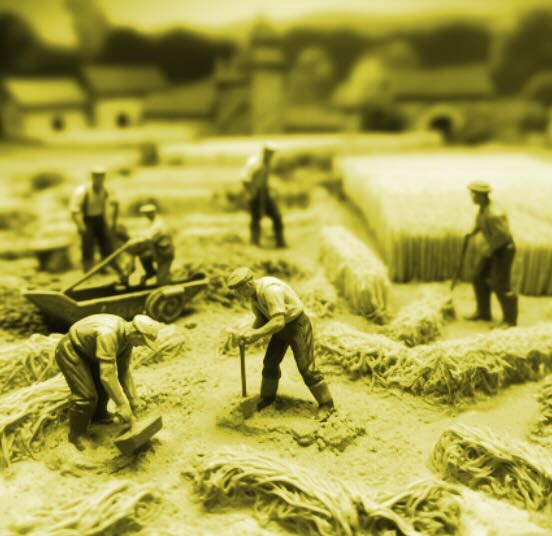What is the Industrial Revolution if not a paradigm shift in the relationship to work? Before the Industrial Revolution, workers were experts in their field. They mastered a set of skills that allowed them to produce an object or perform a relatively complex action. Thus, a knight could hardly improvise himself as a farmer and vice versa. If it is true that mastering weapons took years, learning to work the land and all the peasant knowledge could not be learned in a day either.
What changes with the Industrial Revolution is that it places man as a cog in a great machine. One is no longer a peasant but an agricultural worker. It is essentially the fossil energies which allow this development, first of all the coal and then the oil and finally the gas.
Since the labor force is no longer provided by muscular arms because it is the machine which occupies this role, the worker occupies the function of adjuvant, it is not as central as it had been before.
From the craftsman to the worker
The Old Regime justified a partitioning of classes to allow for a better efficiency of society (and of course to keep the elites in their place). Since learning a trade took years and school did not exist, it was the family that took charge of professional training, it was logical not to allow inter-class marriages to consolidate know-how. Industrialization shatters this paradigm. Given that it takes only a few weeks to be operational as a worker in a factory, the classist discourse no longer holds water to maintain the status quo. It is thus not surprising that the industrialization of a society is necessarily accompanied by a desire for class struggle.
China, powder, industry before its time
But why do I mention imperial China and its forgotten avant-gardism? It is because we have lost sight of the fact that the invention of gunpowder is part of the same phenomenon. When you equip an army with rifles or muskets, you industrialize the warrior who becomes a soldier.
From warrior to soldier
What differentiates the warrior from the soldier? Well, it is above all their etymological origin. The warrior wages war while the soldier receives a salary. This etymological difference is the same as that between a craftsman and an employee, who obviously receives a salary. Basically, what characterizes a soldier is a contractual relationship in that he can go and sell his services elsewhere as a mercenary. This is only true for totally free individuals.
The warrior masters an art that takes years, while the soldier is concerned with performing maneuvers and obeying orders using a weapon he may have only wielded for a few weeks.
Traditionally, an army is composed of three types of units: infantry, artillery and cavalry. The invention of gunpowder will gradually give the preeminence to the artillery.
The army and the company
What brings the army closer to a company? Both have a clearly defined goal: to win battles for one, to sell its products and services and to prosper for the other.
A medieval army (without cannon) is essentially the equivalent of a grouping of warriors who come together to achieve a common goal. This is equivalent to an association of architects, carpenters and masons to build a cathedral. Gunpowder is the first chemical product according to Wikipedia (we could also talk about the bizantine wildfire), it plays the same role as coal or oil in a factory: it saves strength, it makes the warrior a cog in a big machine whose actions are limited in order to preserve the operationality of the whole (like Charlot in Modern Times who only screws bolts).
The army sets the pace for industrialization
It can therefore be argued that it is above all the army that provides the model for what we will later know about industrialization. All the principles are already present. What happened in Europe in the 19th century is in fact only the use of the characteristics of artillery warfare in the world of production. Essentially, traditional warfare was only carried out by experts, and was therefore often confined to an elite to which were added troops of subordinates occupied with carrying shields (squires), taking care of the horses and weapons. The same thing happened with the production workshops of the Middle Ages, where a master glassmaker passed on his techniques and secrets to a small group of people in such a way that he was very valuable. In modern warfare the know-how is scattered and limited between each member which makes them more easily replaceable.
The factory of the nineteenth century functions in much the same way, breaking down the task of production in such a way that no worker or foreman is irreplaceable.
Massification or the war of numbers
Industrialization is characterized by a massification of production. The more workers you have, the more you produce. Warfare using gunpowder works the same way, a large army of incompletely trained soldiers with guns will defeat any group of elite (non gunpowder) warriors whose numbers are limited. This is not true for ancient (remember the 300 Spartans at Thermopylae against Xerxes) and medieval combat.
Remark:
You are going to tell me that the same phenomenon happened with archers (cf. victory of the English archers at Crécy over the Frankish knights). At first sight one could say that yes, but in reality the learning of the longbow is very long (about 5 years on average) and it requires a great quantity of energy to be used contrary to the use of the firearm. The victory of Crécy is more strategic. It was indeed experienced warriors who fought against each other.










